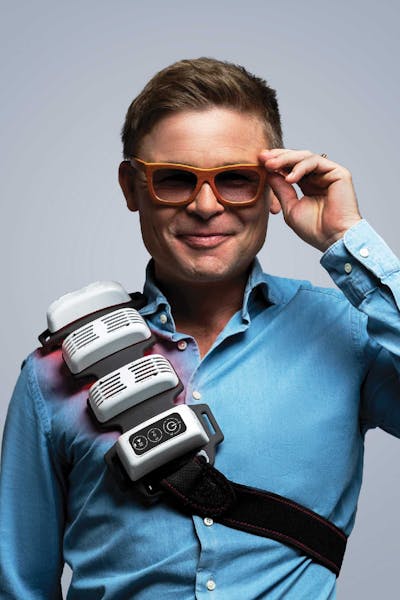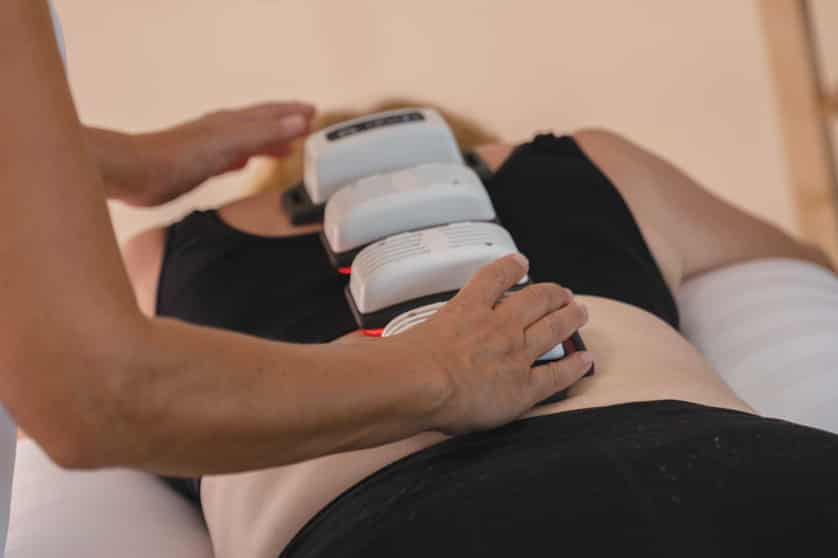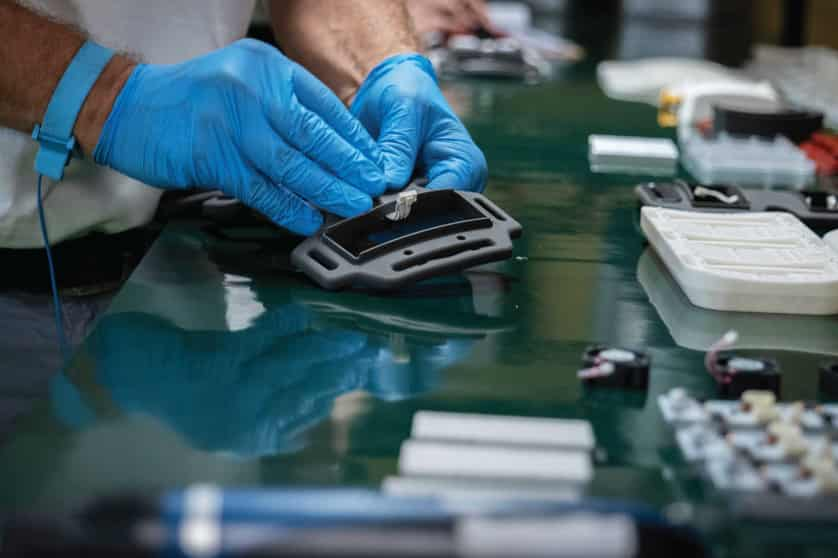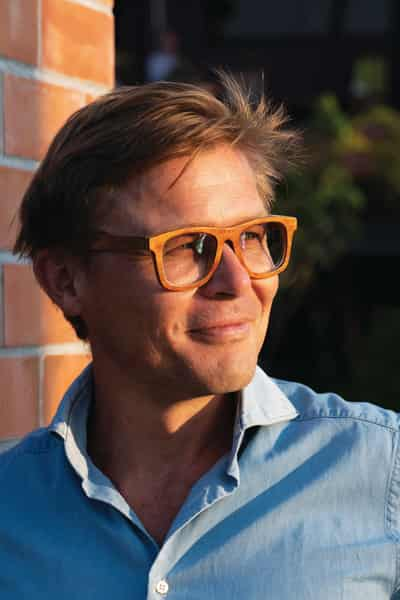
A sprawling village in Hang Dong like thousands of others across the north of Thailand is the incongruous headquarters of Recharge, a dynamic international business on the cusp of greatness…according to team members who all appear to be chomping-on-the-bit with the excitement of things to come.
The labyrinth of tiny village sois is barely navigable. Dogs laze in the sun; stalls selling aromatic grilled chicken spill out onto the road, and the slow pace of country life seduces. Yet the moment you arrive at Recharge HQ, it’s impossible not to feel a thrum of energy surging.
An electric tuk tuk is getting juiced up at the parking dock next to the Recharge café. Inside, over a cappuccino, a white-haired man is discussing the use of light to repair degenerative brain cells with a colleague. A tall man, lost in his ear phones, stands off to the side, absentmindedly spinning the wheels of a skateboard over a smoke as he gazes at the beautifully crafted, wooden in-house skateboard ramp, perhaps thinking about having a go. A cook comes out of the kitchen with a tray of organic vegetarian dishes, ingredients freshly plucked and picked from the company’s own farm, to serve a table of hungry employees who seem to be deep in discussion about biohacking and, oddly enough, vipassana meditation. And a well-dressed couple wanders out of the clinic building at the front of the property to gush about how their aches and pains have gone and to ask for a prospectus of the business, as they are considering investing.
There is a lot going on here and when the CEO of Recharge, Christian Barmen appears — blond, twinkling bright blue eyes, tanned, fit, white teeth blinging and blinding with his ear to ear grin — the energy level pitches up a few notches.
“Everything I have done in my life so far has led me to this,” said Barmen, who began his career at the tender age of 10 as a child actor in his native Norway, soon becoming a household name for his popular role on the country’s only television channel. As the awkwardness of adolescence set in, Barmen forged a successful new career dubbing Hollywood movies, managing to save enough money to begin investing at the age of 16 when he began wearing suits and ties while dabbling in a variety of businesses. By the age of 20 he had joined Maersk, the world’s largest shipping company, as a trainee, which saw him travel around the world, rapidly climbing the ranks of the company until he was headhunted by a customer based in China. The next few decades saw Barmen based mainly in China — he speaks Mandarin fluently.
“I did a lot of business,” said Barmen of his career to date. “I’d invest, divest, start up, sell off and do it all over again. Over the years I have sold Christmas ornaments made in China, I’ve developed software and smart solutions for companies’ global logistical needs, I bought a sunglasses factory, even produced some sex toys — our premier penis ring winning the silver medal for package design at the European Design Awards! I launched a watch brand which was touch screen and very exciting…until iPhone came out a year later, which wasn’t very good for our company,” he laughed. “Basically I became known as the guy who could facilitate large companies’ needs in China and get things done.”

Apparently all set to become a successful international businessman, a couple of moments of epiphany changed the trajectory of Barmen’s life and career.
“You know how much they drink in China, right? Well when I was young it was good fun, but one day I was sitting in a first-class seat on Singapore Airlines and I looked around me at all the men wearing suits and getting drunk and I realised in that moment that that was to be my future. I completely rejected it and stopped drinking right there. I was 25. The next year I was on holiday in Phuket and that was when I met my wife Ploy, and now we have two children. It wasn’t long after that that I became vegan following a severe gall bladder infection. But my body didn’t adjust well to the change until I discovered the works of the King of Biohacking, Dave Asprey, which would change my life. Biohacking is something I find fascinating and I became intensely interested in how to manipulate the body and brain for optimal enhancement through the use of non-traditional methods. It was these separate discoveries that solidified my interest in health and wellbeing and which ultimately brought me here to Chiang Mai.”
“I was living in Xiamen in China when I began researching schools for my children, and couldn’t believe it when I saw a photograph of Panyaden International School here in Chiang Mai. I called my wife and said, ‘honey, we are moving to Thailand.’ And that was that.”
“I didn’t even know what I was going to do at first,” said Barmen, shaking his head. “My young son wanted to do something cool soon after we arrived and I introduced him to skateboarding, a sport I hadn’t touched in 25 years. So initially I got really involved with the skateboarding crowd here, being their sugar daddy so to speak, sponsoring park constructions and helping underprivileged kids explore the sport and travel to competitions. I formed the company Kovert Skateboards which builds skateboards for the Thai market. We also invite any skaters to come and use our facilities here for free.”
“Serendipity or synchronicity, I don’t know what you call it, but soon after arriving in Chiang Mai, not having a clue what I was going to do, I got a call from a Norwegian startup looking for a guy in Thailand to manufacture a solar lantern called SunBell. The company had sold 1,000 units but wanted to scale up pretty rapidly. I contacted Bluechips, a company here in Chiang Mai, and soon we had produced 100,000 units. Things then got crazy when we got a call for a meeting in Budapest by the UNHCR who wanted 300,000 units for the Syrian crisis. This is the holy grail of customers and over the next few years we produced a total of 2.5 million units. I am still a consultant for that company which has two offices in China.”
It was during these heady days of success that Barmen leveraged his knowledge of solar technology by founding Eyekandi Solar, supplying solar technology to local businesses, eventually building the office which has today morphed into the Recharge HQ — and which is completely solar-dependent.
“It was the confluence of my interest in health and wellbeing, my background and connections in manufacturing and logistics, and a conversation I had with a long-term colleague in China, Arjen Helder, who I knew had been developing something really exciting, that led to Recharge,” explained Barmen.
Helder’s background is in electronics repair. He spent fifteen years as a control engineer in China. Later he found himself doing research for the UNHCR to find out how LED lights affect the body. He came across an article which showed that NASA had begun to experiment with LED and infrared light to heal wounds and the aches and pains of astronauts, as they tend to heal very slowly in space. Pharmaceutical solutions weren’t working, according to the article, and Helder was fascinated to learn that infrared produced significant results. He began to tinker with the technology, seeing great potential, especially because LED technology was becoming increasingly more affordable and efficient, and therefore able to replace the far more expensive laser technology which was previously used with infrared.

“I got excited when I heard about Arjen’s work and so I invited him and his family to join us here in Chiang Mai not long after we began work on the SunBell project,” Barmen explains how he curated the first of many experts in a variety of fields to join his team in Hang Dong. “The Russians had been using this technology since 1973, and the world’s top Olympic athletes have also been using infrared to optimise performance and accelerate healing for years, but the price was prohibitive until now. A full body infrared bed can cost 150,000 dollars. But with the recent advances in LED technology, prices have been dropping rapidly. And this is what we are excited about. Arjen has spent the past three years developing a product we call FlexBeam which we are just about to launch this March.”
FlexBeam is a personal red light therapy device which the Recharge team hopes will one day soon be found in every household. After decades of extensive scientific testing and clinically-proven usage, this is the first time the exclusive and expensive technology will be available to the general public. Designed to be used anywhere on the body, the device promises to ‘relieve pain, revive circulation, repair tissue, reduce inflammation and regain performance’. The device is noninvasive, drug free, has no side-effects and has proven to be more efficient than pills for pain relief. Private investors have supported the development of the product which is slickly designed and has gone through vigorous testing, and the Recharge team is now gearing up to launch FlexBeam to the public through a Crowdfunding campaign which will be launched in March.

The onsite clinic, run by co-founder Dr. Zulia Fost, renowned clinician, has been conducting clinical testing for months, a free service for the many people who together have created a formidable body of testimonials for the product.
Walking up the stairs to the second floor of Recharge’s office, it becomes clear that this is a serious place of business focused on preparing for an imminent explosion of growth. While the skateboarding, organic coffee and electric tuk tuks are all charming components of Barmen’s philosophy, culture and vision, the people working here know that they are at the last stages of preparation for the launch of a product with massive potential. Founded just over a year ago, Recharge’s team of 24 bring together expertise from all over the world, to secure FDA approval and to ensure compliance with various regulatory bodies, and to open up markets around the world while wooing investors.
“There are a lot of brain cells and doctorates here in this building,” beamed Barmen with pride, making a point to introduce another co-founder, Guy Beckerlegge, a Brit who has been tasked with taking this product global. “We seem to be attracting all sorts of fascinating people who come here by accident and have decided to stay on and join the team. Every team member is also a shareholder, so they are fully invested in our success and deeply committed.”
For Barmen, Recharge is more than a business venture. It is the embodiment of his passions, his beliefs and his personal culture. The food sold at the office café is all healthy and wholesome, the staff are often invited to join Barmen in exercising or practicing yoga. He shares his findings of supplements and lifestyle improvements with team members and offers an assortment of toys and tools to play with to keep the mind active and the body firm throughout the day — there is even a full-bodied infrared light in the toilet should anyone fancy stripping off and getting recharged for ten minutes during the day.
Committed to health and wellbeing, Barmen is currently drafting the Great Escape plan for 2020, which could see the entire company moving to Pranburi over the pollution months. Last year he was so concerned about the pollution, Recharge is now importing air filtration systems from the company in China which first designed them for hospitals post SARS. These purifiers are used throughout the company, offered at deep discount to the team and also sold locally.
“I came here because of the corporate company culture”, Garnet Dupuis, the newest team member and the man Barmen fondly calls the resident genius said. “It’s inspiring, entertaining, sincere and warm. It is not easy to find. Here I have a nomadic existence wandering from room to room, desk to desk. We all do. Christian sets the tone. You feel a palpable change in the energy when he is here.”
Recharge is launching its ambitious crowdfunding campaign through theflexbeam.com and on Indiegogo for a worldwide audience. It’s already possible to sign up for early discounts and orders begin in late March.
FB: theflexbeam
Email: contact@personalrecharge.com, marketing@personalrecharge.com
